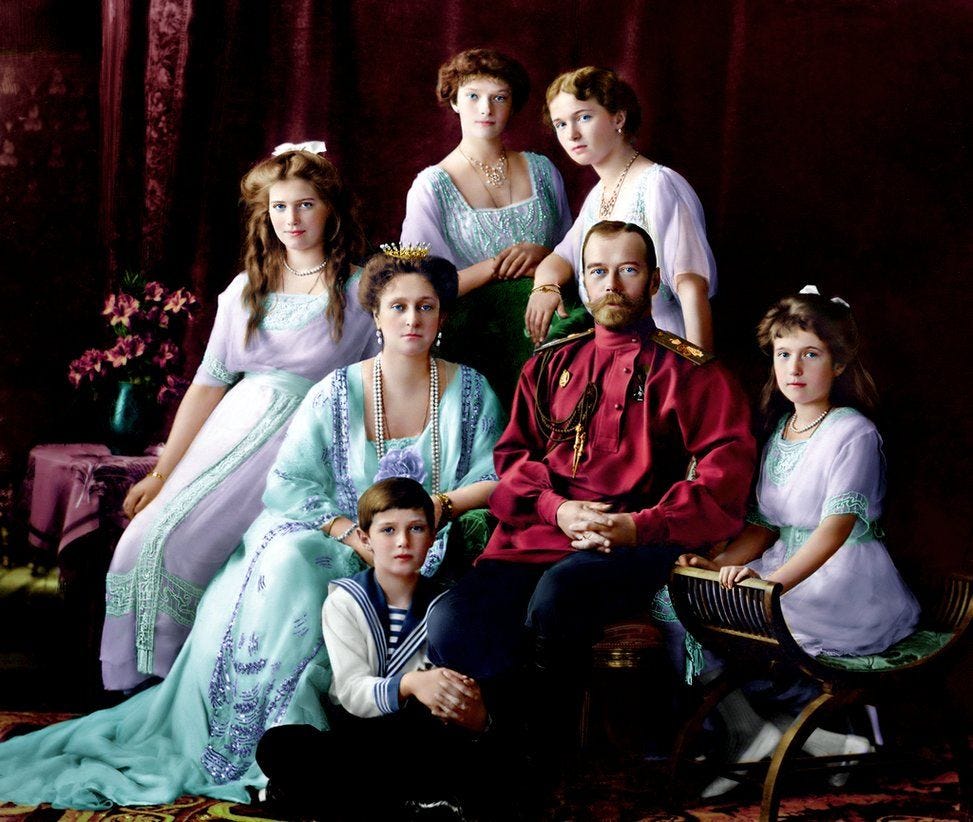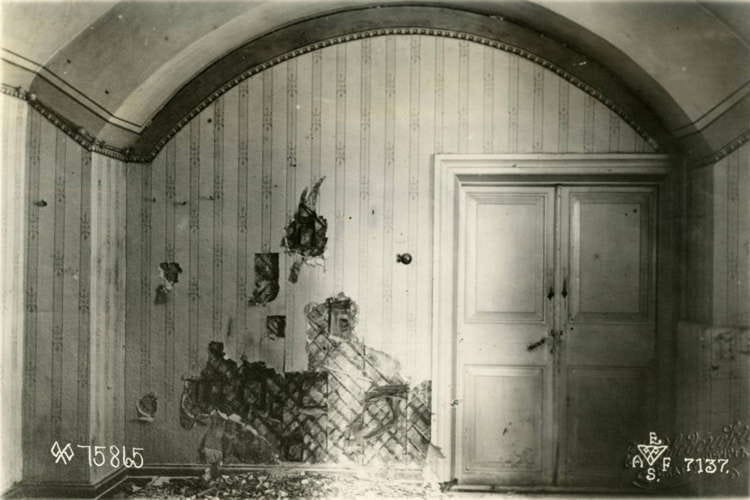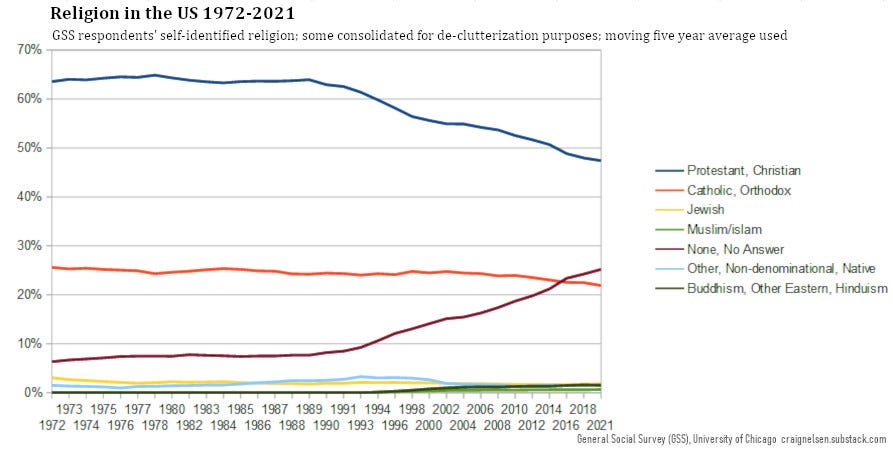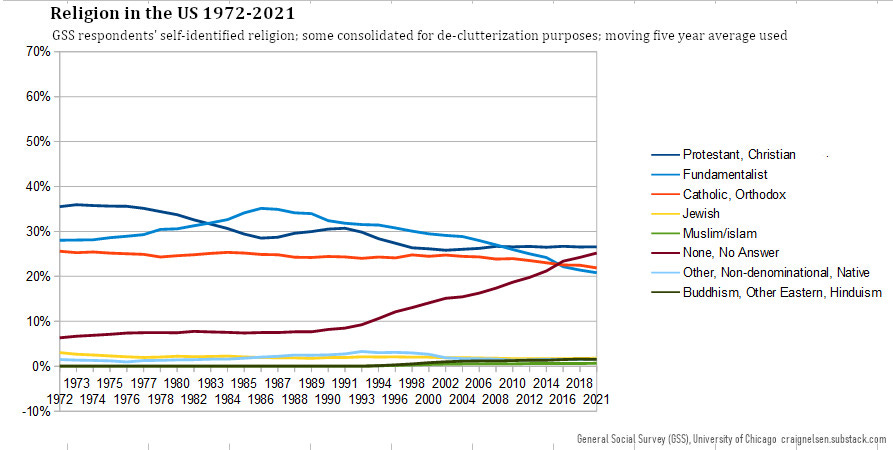For most of the last decade, I lived a half block from the Walter E. Washington Convention Center in Washington, DC. Built on one of the bald spots left in the city by the 1968 riots, it now hosts everything from presidential inaugural balls to boxing events in its 2.3 million square feet of space. When it hosted a summit of world leaders to discuss nuclear safety, the security was so tight all the streets in the surrounding blocks were lined with solid steel plates twice a man’s height. From above, the black Lincoln Navigators zipping in and out from all directions up and down the narrow steel corridors looked like coked up rats in a maze.
The real rats arrived every year when the Convention Center hosted the American-Israeli Public Affairs Committee (AIPAC) event. Congress swarmed off Capitol Hill and filed through the Convention Center paying homage to the most feared single entity in DC—“the terrible power of the Jewish purse,” as Theodor Herzl put it.

Presidents, too, must offer obeisance. On May 18, 2004, it was George W. Bush’s turn. After commiserating with the Israelis for the “tough neighborhood” they are in, Bush said:
On September the 11th, 2001, Americans saw that we are no longer protected by geography from the dangers of the world. We experienced the horror of being attacked in our homeland, on our streets, and in places of work. And from that experience came an even stronger determination, a fierce determination to defeat terrorism and to eliminate the threat it poses to free people everywhere. (Applause.)
Of course, by May, 2004, when Bush gave his speech, we were already neck deep in our Iraq disaster, which Bush was still pretending was a response to the 9/11 attacks. In truth, of course, our attack on Iraq was for Israel’s sake and it’s a pretty safe bet there were many sitting in that AIPAC audience who shared my view that Israel was behind the 9/11 attacks as well. Israeli culpability can practically be deduced from the following photo alone:

Bush continues his address to AIPAC:
They hate all who reject their grim vision of tyranny. They hate people who love freedom. They kill without mercy. They kill without shame. And they count their victories in the death of the innocent.”
Meanwhile, here’s what the US military was doing without mercy and without shame in Iraq while Bush was commander-in-chief:
The video is from Wikileaks. Julian Assange is sitting in solitary confinement right now for releasing this “classified” video letting us know what our government was up to. You know, just like a real journalist is supposed to.
Bush continues, speaking of those serving in the US military:
They have done all this to defend our country and to advance the cause of freedom and peace…The world's best hope for lasting security and stability across the Middle East is the establishment of just and free societies…We must be strong in our belief that free societies are hopeful societies and peaceful societies. (Applause.)
In the footage above showing American soldiers advancing the cause of freedom and peace, notice the length of time it takes from the time the sound of the gunfire begins until the time the bullets hit the group of men in civilian clothes who posed no threat to us and had done nothing to us, who were standing on a street in their city, in their country, talking. That’s how far away the gunship was from these men. At that distance, you wouldn’t be able to hear the helicopter, so you would have no idea the gunship was even there. You’re standing there in conversation, then suddenly your friend’s head explodes, the only sound, the sound of the bullet penetrating his skull. And then you would hear the sound of the gun being fired.
The United States had zero interest in Iraq, a country with an economy the size of Delaware’s. Israel, however, had long considered Iraq its “enemy.” Speaking to the group that lobbys on Israel’s behalf, Bush used the Zionist-orchestrated events of 9/11 to justify spending American blood and treasure to destroy Israel’s enemy. But it was “worth it,” in the words of Madeline Albright, our Jewish Secretary of State under the previous administration, when referring to the half million Iraqi children who died as a result of US and British sanctions. It was worth it because we were advancing the cause of freedom and peace. (Applause.)
Bush moves on to the topic of the Gaza Strip:
The unfolding violence in the Gaza Strip is troubling and underscores the need for all parties to seize every opportunity for peace. I supported the plan announced by Prime Minister Sharon to withdraw military installations and settlements from Gaza and parts of the West Bank. (Applause.)
That violence in the Gaza Strip has “unfolded” into a full-on genocide since President Bush spoke those words to the people whose job it was to ensure we kept paying for the bullets. Here’s a brief clip of your tax dollars at work:
The unarmed Palestinian man in the video was taking bold, courageous steps to come to the aid of another man who’d just been shot with those bullets we keep giving Israel for some reason. Then he, himself, was shot in the back of the head by an Israeli soldier.
As I said in my statement on April 14, 2004, the Prime Minister's plan is a bold, courageous step, that can bring us closer to the goal of two states, Israel and Palestine, living side-by-side in peace and security. (Applause.)
So, whatever happened to that “two-state solution,” anyway? Why was it never implemented? Maybe President Bush can give us some clues:
First, the Palestinian people must reject corrupt and failed leaders, and insist on a leadership committed to reform and progress and peace. (Applause.)
Okay, so we’ll let Palestinians choose their own leaders as soon as they choose good, non-corrupt ones. Like we do.
Second, they must renounce terror and violence that frustrate their aspirations and take so many innocent lives. (Applause.)
Yeah, Palestinians, stop getting shot in the back of the head if you don’t want your aspirations frustrated.
In other words, the two-state solution was never really on the table in the first place. Bush was simply repeating Israeli lies. But Bush was hardly the first gentile leader to subordinate the interests of his own people to purely Judaic interests. That distinction belongs to King Cyrus, the Persian who conquered Babylon in 536 BC during the time of the Jewish “captivity.”
The Old Testament book of Daniel tells the story of a prophet of Jehovah named Daniel. In the story, Jehovah gets offended when the Babylonian King Belshazzar uses Jehovah’s cup at a feast. Suddenly, a mysterious hand appears out of thin air and writes the words “Mene, Mene, Tekel, Upharsin” on the wall. But no one knows what that means, so they send for Daniel, who tells the king that it means God is pissed and is going to end his reign. That very night, someone killed King Belshazzar and Babylon fell to the Persian King Cyrus.
From Douglas Reed’s The Controversy of Zion:
Thus the end of a king and a kingdom is related directly to an affront offered to Judah and given the guise of a Jehovan retribution and Jewish vengeance. What matter if Daniel and King Belshazzar never existed: by its inclusion in the Levitical scriptures this anecdote gained the status of a legal precedent! When the murder of the Russian Czar, his wife, daughters and son in 1918, again, was related directly to this legend by words quoted from it and scrawled on a blood-bespattered wall this was at once an avowal of authorship of the deed, and a citation of the legal authority for it.
The Daniel story provides a political template. A Jew gains access to a gentile ruler and, through this close proximity, wields great influence, with uncanny foreknowledge, on behalf of the Jews. Reed continues:
Evidently the book of Daniel, like the books of the Law attributed to Moses, was the product of Levitical scribes who in it patiently continued to make history conform with their Law, already laid down. If a King Belshazzar could be invented for the purpose of illustration and precedent, so could a prophet Daniel. This, apparently mythical Daniel is the most popular prophet of all with the fervent Zionists of today, who rejoice in the anecdote of the Judahite vengeance and triumph foretold on the wall, and see in it the legal precedent for all later time. The story of our present century [the 20th] has done more than that of any earlier one to strengthen them in this belief and for them Daniel, with his “interpretation” fulfilled “in the same night,” gives the conclusive, crushing answer to the earlier Israelite prophets who had envisioned a loving God of all men. The fall of Babylon (as depicted by the Levites) gave practical proof of the truth and force of the “Mosaic” Law.
However, it would all have come to nothing without King Cyrus, who alone of the three protagonists did exist and did either allow, or compel, a few thousand Judahites to return to Jerusalem. At that point in history the Levitical theory of politics, which aimed at the exercise of power through the acquirement of mastery over foreign rulers, was put to its first practical test and was successful.
Just how do Jews gain such mastery over foreign rulers? In the court of Tsar Nicholas II, Jewish influence entered the heart of the monarchy through a Siberian peasant turned mystic, a monk named Grigori Rasputin.
Though he had had a reputation for mysticism in his native village, Rasputin was an ordinary peasant raising a family and running his farm until he suddenly left his wife and children in Siberia and went out wandering around Russia being a mystic and a holy man. Eventually, he found his way to St Petersburg, the seat of royal power. Through the church, he met a well-connected priest who served as confessor to the royal couple. Eventually he was introduced to Tsar Nicholas and Empress Alexandra.
In a personal letter sent in October, 1906, Tsar Nicholas wrote, “A few days ago I received a peasant from the Tobolsk district, Grigori Rasputin, who brought me an icon of St. Simon Verkhoturie. He made a remarkably strong impression both on Her Majesty and on myself, so that instead of five minutes our conversation went on for more than an hour.” That letter was written to Russian Premier Peter Stolypin in the wake of an unsuccessful assassination attempt on him that killed 62 people and injured two of his children. The letter continues, showing Rasputin’s networking skills, “He will soon be returning home. He has a strong desire to bless your injured daughter with an icon. I very much hope that you will find a minute to receive him this week. This is his address: St. Petersburg, 2 Roszdestvenskaya, 4. He is staying with the priest Yaroslav Medved.”
Rasputin encouraged Nicholas to have more confidence in his role as czar, and Alexandra found that his counsel soothed her anxieties. Moreover, Rasputin seemed to have a beneficial effect on the health of Nicholas and Alexandra’s young son and heir to the throne. He was made a permanent presence in the Court and, by the start of the First World War, Rasputin was also providing political advice and making recommendations for ministerial appointments, much to the dismay of the Russian elite.1
Aleksandr Solzhenitsyn fills in some details about that political advice and those recommendations for ministerial appointments in his book, 200 Years Together:
However, at the top of the monarchy—in Rasputin’s morbid entourage—a small group of rather shady individuals played an important role. They not only outraged the right‐wing circles—they are why, in May 1916, the French ambassador to Petrograd, Maurice Paleologue, noted in his diary: “A bunch of Jewish financiers and dirty speculators, Rubinstein, Manus, etc., have concluded an agreement with him [Rasputin] and compensate him handsomely for services rendered. On their instructions, he sends notes to ministers, to banks or to various influential personalities.”2
Indeed, if in the past it was Baron Ginzburg who intervened openly in favor of the Jews, this action was henceforth conducted secretly by the upstarts who had clustered around Rasputin. There was the banker D. L. Rubinstein (he was the director of a commercial bank in Petrograd, but confidently made his way to the entourage of the throne: he managed the fortunes of Grand Duke Andrei Vladimirovich, made the acquaintance of Rasputin through A. Vyrubova,3
This woman seems to have been something like a John Bolton, a sort of ineradicable, loose-cannon zealot.
Rubinstein attached to Rasputin a permanent “secretary,” Aron Simanovich, a rich jeweler, diamond dealer, illiterate but very skillful and enterprising (but what did Rasputin need of a “secretary”, he who possessed nothing?…)
This Simanovich4... published as an emigre a little book boasting about the role he had played at that time. We find in it all sorts of gossip without interest, of fabrications (he speaks of the “hundreds of thousands of Jews executed and massacred by order of the Grand Duke Nikolai Nikolaevich”);5 But, beneath the dreck and self-aggrandizement, one can glimpse real facts, quite concrete.
Solzhenitsyn gives a couple of examples of Simanovich claiming to have used Rasputin to help hundreds of Jews avoid military service or prison, then quotes him:
Rasputin “had become the friend and benefactor of the Jews, and unreservedly supported my efforts to improve their condition.”6
Rasputin, the humble holy man, spent lavishly. While continuing to support his wife and family, he was given to all-night parties with plenty of wine, women, and song. His “secretary” provided the funds and Rasputin provided the influence. One bit of political advice that Tsar Nicholas II heeded disastrously was Rasputin’s suggestion that the Tsar leave St Petersburg and conduct the war against the Germans at the front. The Empress, especially, was keen on the idea and finally prevailed on her husband to follow Rasputin’s advice. Against the united wishes of the aristocracy, the Tsar acceded to his wife’s counsel and left for the front. The result was that, as Russia’s fortunes in the war went from bad to worse, the Russian people blamed the Tsar, bringing the monarchy into further disrepute. His arrival had an even worse impact on the morale of the soldiers at the front, among whom it was “common knowledge” without evidence that, back at the palace, Rasputin was cuckolding the Tsar they were supposed to be willing to give their lives for.
Meanwhile, the banker, Rubinstein, came under suspicion for “speculative operations with German capital”, war-profiteering, and other financial crimes. On the decision of the Minister of Justice, Makarov, Rubinstein was arrested on July 10, 1916 and charged with high treason.”7
Both Rasputin and the Empress interceded on Rubinstein’s behalf; the Jewish banker received the strongest support from the Empress herself. When Rubinstein was released in December, Rasputin had only ten days left to live, but that was time enough to render one last service to the Jews. Upon Rubinstein’s release, Minister of Justice Makarov was dismissed.
Rubinstein eventually made his way to Stockholm, where he became the financial agent for the Bolsheviks. The patriot Makarov was executed in September, 1918, lasting not quite a year under the Bolshevik regime. But he lasted two months longer than the royal family. At one o’clock in the morning, July 17, a band of drunken Jewish murderers woke the royal household and told everyone to dress for a family portrait. Then they took them to the cellar, took a picture, and executed the German-born Empress with her husband, four daughters, son, and four faithful servants. Handwriting on the wall of the execution chamber read, in German,
Belsatzar ward in selbiger Nacht
Von seinen Kuechter umgebracht
(Balthazar was, in this same night, killed by his slaves)
But the German version of Belshazzar is Belsazar. The inscriber added a “t,” playing on the word “tzar.”8
“And he shall deliver their kings into thine hand, and thou shalt destroy their name from under heaven:” Deuteronomy 7:24 This is the loathsome god Zionists worship—the bloodthirsty tribal deity who commanded the slaughter about to take place in the photo below.

This is the depraved Levitical god in whose service the Talmudists are slaughtering the people of Palestine today. “But of the cities of these people, which the LORD thy God doth give thee for an inheritance, thou shalt save alive nothing that breatheth:” Deuteronomy 20:16
Rasputin was like the Old Testament: sensual, beastly, worming his way into the heart of the civilization by pretending mysterious religious depths. Elevated by human folly and frivolity, he was a vehicle (one of them) through which the enemy of humanity—Jehovah—seized control of the civilization and destroyed it. Likewise, the 5th Century declaration by a group of theologians that the Old Testament and the New Testament are “of equal divine authority” elevated the primitive Levitical blood-god far above the witch-sniffers and chicken-blood dancers and virgin-eating volcanoes among whom it belongs.
Here is the bottom line, Christians: No real God can have a “chosen” people, because, if “He” did, He wouldn’t be a universal God. And if He’s not a universal God, He’s not a real God. If you believe you worship a real God, who, at the same time, has a “chosen people,” you are believing a logical impossibility. When you spend a lifetime forcing yourself to believe in the truth of an impossibility, or, rather, tricking yourself into thinking you believe in it, you are more susceptible to falling for absurdities like “they hate people who love freedom.” Just think about this blatant absurdity as an example: you claim to worship a loving God and, at the same time, you support the slaughter of innocent children in Gaza because it’s part of “God’s plan.” Your beliefs are just clearly wrong.
And it matters. Since 1972, the University of Chicago’s General Social Survey (GSS) has conducted 72,389 in-depth interviews with Americans from all walks of life, the results of which they publish every other year or so. They almost always ask the interviewee what religion they are.
Since 1972, by GSS data, Protestantism has been the dominant religion in the United States, though Protestants have declined as a share of the population from about two-thirds of the population up until about 1989 to less than half today. Catholics have remained at about a quarter of the population from 1972 until now, having declined only slightly over that time, but I strongly suspect that that 25 percent has become much browner in the last half century. Some of the decline in the Protestant numbers and the demographic change in the Catholic numbers can be ascribed to immigration, of course, but look at the remarkable growth in the “None/No answer” category. Up until about 1994, that category, while still third most popular, never got above the single digits as a share of the population. Since then, its share has risen steadily and, today, the “None/No answer” category is about 25 percent of the population, passing up Catholics as the second most popular “religion.”
The GSS also asks interviewees whether they consider themselves religiously “liberal,” “moderate,” or “fundamentalist.” Basically, Jews—even the Orthodox—always say “liberal,” Catholics always say “moderate,” and about half of Protestants say “liberal” or “moderate” and the other half say “fundamentalist.”
Separating out fundamentalists from Protestants, it becomes clear what a large segment of the population fundamentalists are. Combined with “the terrible power of the Jewish purse,” the political weight of this large group of voters guarantees the US will continue to spend blood and treasure in support of Israel’s evil, genocidal agenda unless the fundamentalists can be made cognizant of how badly misled they have been.
Surely, out there, there is a small group of Christian leaders with the courage and intelligence and the nobility of spirit to lead a religious revolution that will exorcise bloody Satanic Jehovah out of our religion.
In Russia, in 1916, the revolution that would result in the abdication by the Tsar was just weeks away when, on December 30th, a small group of noblemen murdered Rasputin, the corrupt Christian holy man and willing agent of the Jews. But it was too late to save the monarchy. The nobility had waited too long.
Maurice Paleologue, Tsraskaia Rossia nakanoune revolioutsii (Imperial Russia on the eve of the revolution), M., Pd., GIZ, 1923, p. 136.
Anna Vyrubova (1884 1964), maid of honor of the Empress of which she was for a long‒time the best friend, fanatic admirer of Rasputin, permanent intermediary between the imperial couple and the starets [elders in the Russian Orthodox Church, religious leaders, holy rollers]. She was arrested in 1917, freed and re‐arrested, and managed to escape to Finland where she would live for more than 45 years, completely forgotten about.
Simanovich was the source, for what that’s worth, of the Trotsky quote:
We must turn Russia into a desert populated by white negroes upon whom we shall impose a tyranny such as the most terrible Eastern despots never dreamt of. …We shall show what real power is. By means of terror and bloodbaths, we shall reduce the Russian intelligentsia to a state of complete stupefaction and idiocy and to an animal existence... At the moment, our young men in their leather jackets, who are the sons of watchmakers from Odessa, Orsha, Gomel and Vinnitsa, know how to hate everything Russian! What pleasure they take in physically destroying the Russian intelligentsia — officers, academics and writers!...
From the memoirs of Aron Simanovich, quoted in numerous Russian scholarly works, including The Nature of Zionism By Vladimir Stepin, published (in Russian) in Moscow, 1993 and translated into English (for Radio Islam) by Clive Lindhurst.
A. Simanovich, Rasputin i ievrei. Vospominania litchnovo sekretaria Grigoria Rasputin (Rasputin and the Jews, Memoirs of the personal secretary of Grigory Rasputin), [Sb.] Sviatoï tchërt. Taïna Grigoria Raspoutina: Vospom., Dokoumenty, Materialy sledstv. Komissii. M. Knijnaya Palata, 1991, pp. 106 107.‒
Simanovich, pp. 89, 100, 102, 108.
V. N. Semennikor, Politika Romanovykh nakanoune revolioutsii. Ot Antanty—k Guermanii (Politics of the Romanovs on the Eve of the Revolution: From the Agreement to Germany), M., L., GIZ, 1926, pp. 117, 118, 125.
I’ve read claims there was also a pornographic drawing on the wall of the Tzarina and Rasputin along with various insults to the royals.











I can't help but wonder how history might have been different if Tsar Nicholas II and his Tsarina had had four sons and one daughter. Would four elder sons have provided enough male energy to counter-act the poor political advice of Alexandra, and helped their father, the family patriarch and the Patriarch of Russia, to have ruled better?
In the natural order, men and women have different spheres of influence. Man's sphere is the nation; Woman's sphere is the family. "The Ancients viewed hubris as an affront to the gods, with the worst crime committed by the hero when he transgresses the natural order." (Prof Tom Sunic, in an article posted today at The Occidental Observer.)
It is so sad to see that last photograph of the Romanovs. They are such tragic figures. I can't help but see symbolic parallels between their family and our current society: the wife does not know her place; the daughters are the "elders" amongst the children, and though of child-bearing age, are childless themselves; the only son is a sickly hemophiliac.
I don't mean to be morose. I just like to think that there is something we can learn from these old stories and those who have gone before us, if we let them have an impact on us.
"our attack on Iraq was for Israel’s sake"
Hmm yeah, what did we do in Iraq, aside from all the war crimes in general, we disenfranchised the Sunni minority, which became ISIS. We then outfitted them with all the best video cameras and trucks and black pajamas, and sent them to fight alongside our al qaeda affiliate against Assad in Syria. Barack kept repeating there were no boots on the ground in Syria, then Trump said we were there to protect the oil, and now the Depends administration says they are bombing Syria in self defense of the military bases we built there. While U.S. troops in the region accumulate "brain injuries".
Oh and ISIS was also really good at blowing up priceless cultural artifacts that have existed since long before anyone ever heard of David or Daniel or Jesus or Mohammed or any of it.
America is going the way of Germany. Trump is going to take us there.